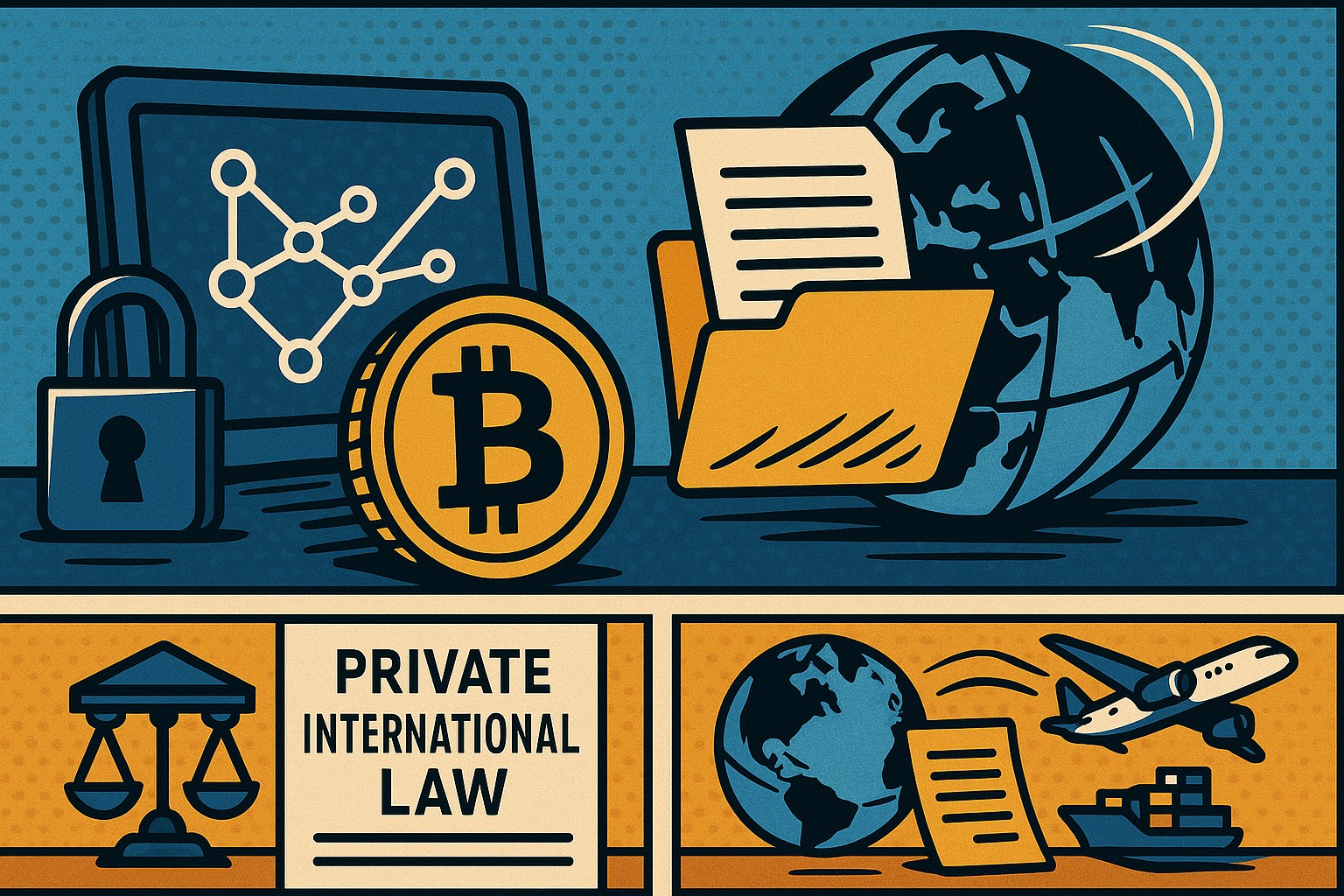
In June 2025, the Law Commission of England and Wales published Consultation Paper No. 273 on Digital assets and (electronic) trade documents in private international law, including Section 72 of the Bills of Exchange Act 1882. The paper addresses one of the most pressing questions in modern commerce: how should cross-border disputes involving blockchain, crypto-tokens, and digital documents be resolved under existing legal frameworks?
The report highlights that while technology has transformed trade and finance, private international law still relies heavily on territoriality—the idea that disputes should be governed by the law of the place where assets, people, or actions are located. In a decentralised digital world, this premise no longer provides clear or workable answers.
Why Digital Assets Challenge Legal Boundaries
Private international law traditionally deals with three key questions:
- Jurisdiction: Which country’s court should hear the dispute?
- Applicable law: Which country’s law should govern the dispute?
- Recognition and enforcement: Will a judgment be respected and enforced in other countries?
Digital technologies complicate all three. For example:
- A crypto-token may be “held” simultaneously across multiple jurisdictions.
- An electronic bill of lading may be recognised in one legal system but rejected in another.
- Victims of crypto fraud may struggle to trace assets or identify defendants because of pseudonymity and decentralisation.
The Commission concludes that without reform, parties face uncertainty, higher litigation costs, and potential denial of justice.
Key Legal Themes
- International jurisdiction
English courts have so far heard crypto disputes mainly in the context of fraud or hacking. Determining where such cases belong is challenging, as digital assets are not tied to a physical location. - Applicable law (conflict of laws)
Traditional rules—such as applying the law of the place where property is located (lex situs)—do not translate well to intangible, decentralised assets. Multiple jurisdictions may simultaneously claim a connection. - Recognition and enforcement
Even if a judgment is secured in one court, it may be useless if other jurisdictions do not recognise electronic documents or digital assets as valid property. - Outdated statutory provisions
Section 72 of the Bills of Exchange Act 1882, which regulates cross-border recognition of bills of exchange, cheques, and promissory notes, is increasingly obsolete in the digital era.
Provisional Proposals for Reform
The Consultation Paper sets out several proposals to modernise the law:
- A new free-standing information order
Courts would be empowered to compel disclosure at an early stage of proceedings to help victims trace crypto-assets and identify perpetrators. This would address the evidential difficulties inherent in decentralised systems. - Clarifying jurisdictional gateways
The rules on when English courts can accept cases involving foreign parties would be adapted to cover digital asset disputes, ensuring access to justice where claimants have a legitimate link to England and Wales. - An alternative approach to applicable law
Instead of forcing courts to choose one territorial law when assets exist “everywhere and nowhere,” the Commission suggests an omniterritorial approach. This would allow courts to focus on fair disposal of proceedings rather than artificial localisation. - Modernising Section 72 of the Bills of Exchange Act 1882
The law governing bills of exchange, cheques, and promissory notes would be updated to apply equally to both paper and electronic instruments. This reform would align English law with the realities of global trade and digitalisation.
Implications for Business and Trade
For traders, banks, and investors, these reforms could mean:
- Greater certainty when using electronic trade documents (ETDs) in international commerce.
- More effective legal remedies against fraud in the crypto-token environment.
- Modernised rules that support innovation while maintaining trust in financial instruments.
- Alignment with global initiatives such as UNCITRAL’s Model Law on Electronic Transferable Records.
Conclusion
The Law Commission’s consultation underscores a broader truth: the rules of private international law, built on territorial assumptions of the 17th century, struggle in the borderless digital economy of the 21st century. Reform is essential not only to resolve disputes fairly but also to ensure that England and Wales remain an attractive and reliable forum for international trade and investment.
The consultation runs until September 2025, with final recommendations expected in 2026. The outcome may well set a precedent for how legal systems worldwide adapt to the realities of digital assets and electronic trade.
Summary by DigitalTrade4.EU
